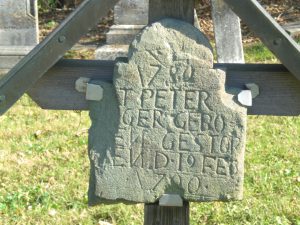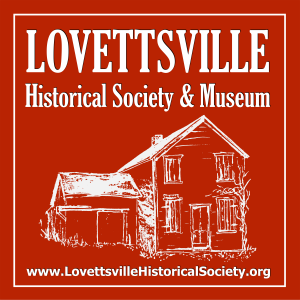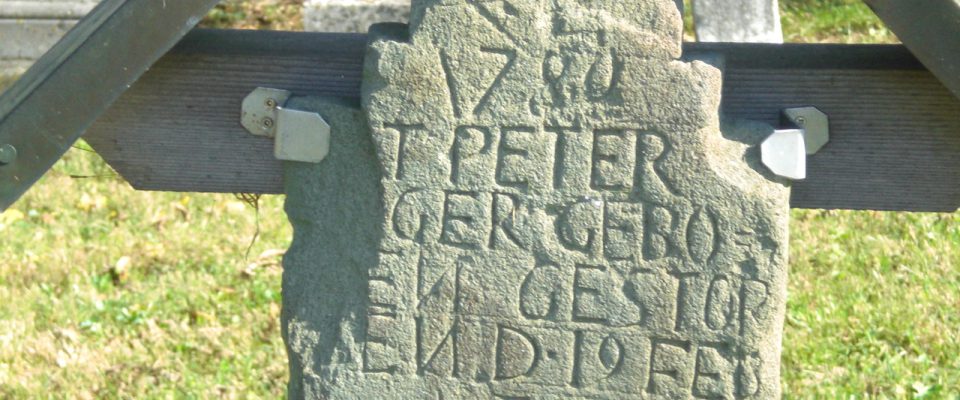“Loudoun on the Eve of the American Revolution: A Patchwork Quilt of Diversity”
Presented by Richard Treat Gillespie
Sunday, August 13, at 2:00 p.m.
In person or Live-streamed via Zoom
St. James United Church of Christ,
10 East Broad Way, Lovettsville

Modern Loudoun County is nothing if not diverse in the 21st century. Rapidly growing, rapidly changing, we have multiple racial, ethnic, and religious groups and are a multi-class society. There are pockets where most are of the same racial or ethnic group, and other areas of the county where the society is more mixed. We are a pluralistic society, yet find we share much in common, particularly among the rising generation. We are at the cutting edge of an evolving American society.
Interestingly, everything just said about 21st century Loudoun could be said about Loudoun 250 years ago. A new county, settled just forty years earlier by Europeans and Africans—and abandoned for decades by native Americans before that — we were all about “new” and “change” and “growth.”
Our population had nearly tripled in the twenty years leading up to 1773, and doubled in the nine years immediately before. Cultures seeming strange to an English society were being added—German, Scottish, Scots-Irish, and West African, to name but a few.
From a unified Church of England faith, a variety of new pop-up faiths and some seen as an anathema were beginning to take over the landscape — Baptists, Methodists, Presbyterians, Quakers, Lutherans, German Reformed — all were populating the landscape with their odd steeple-less “meetinghouses.”
On a map, seemingly living cheek by jowl, closer examination shows a patchwork quilt of differing societies with differing faiths separate, and yet by proximity, together. Interestingly, here in what historians refer to as the “Southern Back County,” we found that when it came to politics, we shared much in common. By and large, we were up-and-coming rather than arrived, we were self-made men and women rather than wealthy by inheritance. We were independent, we didn’t like being told what to think or how to worship, and . . . we were willing to challenge “the man”—if it ever came to that.
Offered as an introduction to the “Virginia 250” —the semi-quincentennial of the American Revolution — our commemoration of the coming of the American Revolution here in Virginia and in Loudoun, this program will examine that rapidly changing diverse society, here on the recent frontier, with Loudoun stories and photographs of our historical landscape. It is that society that will enter the American Revolution in the spring of 1775. And it is a society that after removing our 21st century glasses, shows that in its infancy, it had much in common with today.
Speaker Rich Gillespie is a member of the Board of Directors of the Lovettsville Historical Society. A public historian for the past 56 years, he cut his teeth interpreting the beginning of the American Revolution fighting at Lexington as an appointed Town Guide by the Town of Lexington, Massachusetts. After two careers—one as a history teacher for the Loudoun County Public Schools at Loudoun Valley High School where he heavily used historic sites in his teaching, the other working as Director of Education for the Mosby Heritage Area—he now is the Historian Emeritus of the Virginia Piedmont Heritage Area and is still actively engaged in giving programs, tours, and courses in the field in our local history.
Gillespie’s presentation will be held at St. James United Church of Christ, at 10 East Broad Way, in Lovettsville. The program will be followed, as is customary, by questions and discussion.
The Zoom link will be sent out before the lecture. To request the Zoom link, please RSVP to events@LovettsvilleHistoricalSociety.org
Admission is free, but donations and are welcome to defray expenses of the program and to support the activities of the Lovettsville Historical Society.

